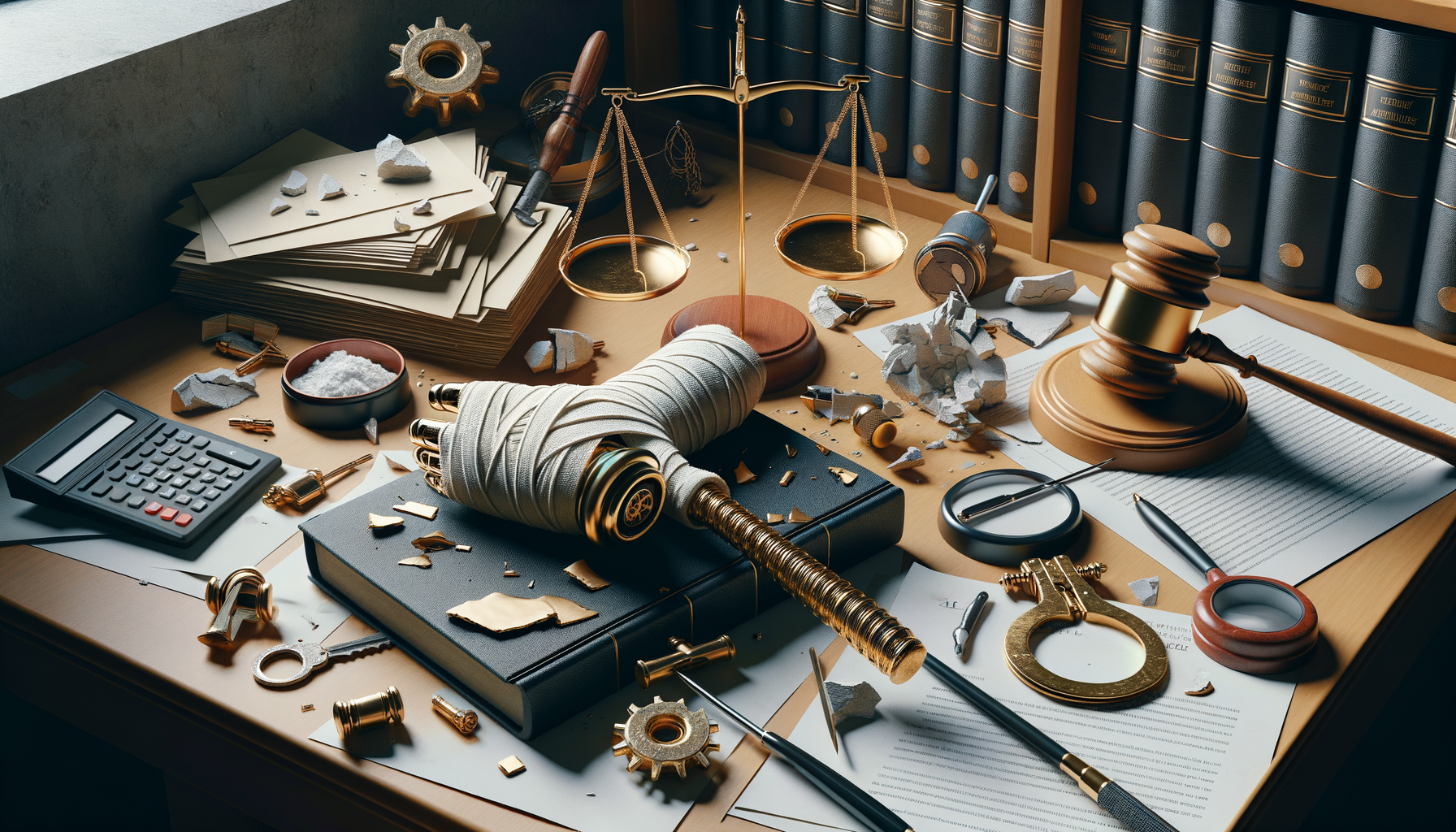Understanding Personal Injury Law
Personal injury law is a crucial aspect of the legal system that deals with cases where individuals have been harmed due to the negligence or wrongdoing of others. This area of law is designed to ensure that victims receive fair compensation for their injuries, which can include physical harm, emotional distress, and financial loss. Personal injury cases often arise from situations such as car accidents, medical malpractice, slip and fall incidents, and workplace injuries. Understanding your rights and the legal processes involved is essential for anyone who has suffered an injury due to another’s actions.
One of the fundamental principles of personal injury law is the concept of negligence. To succeed in a personal injury claim, the injured party must demonstrate that the defendant owed them a duty of care, breached that duty, and caused the injury as a result. This can be a complex process, requiring a thorough understanding of legal standards and evidence collection.
In addition to negligence, personal injury law also covers intentional acts where one party deliberately causes harm to another. These cases often involve more severe consequences and can lead to punitive damages, which are intended to punish the wrongdoer and deter similar behavior in the future.
The Role of a Personal Injury Lawyer
A personal injury lawyer plays a vital role in helping victims navigate the complex legal landscape following an injury. These legal professionals are equipped with the knowledge and experience necessary to handle all aspects of a personal injury case, from initial consultation to settlement negotiations or trial. Their primary goal is to ensure that their clients receive the compensation they deserve for their injuries and related losses.
Personal injury lawyers provide several key services, including:
- Conducting a thorough investigation of the incident to gather evidence and establish liability.
- Negotiating with insurance companies on behalf of the client to secure a fair settlement.
- Representing the client in court if a settlement cannot be reached, advocating for their rights and interests.
In addition to these services, personal injury lawyers offer valuable guidance and support throughout the legal process. They help clients understand their rights, explain complex legal concepts, and provide advice on the best course of action. This support can be invaluable, especially for individuals who are dealing with the physical and emotional aftermath of an injury.
Choosing the Right Personal Injury Lawyer
Selecting the right personal injury lawyer is a critical decision that can significantly impact the outcome of your case. With so many options available, it can be challenging to determine which attorney is the best fit for your needs. Here are some factors to consider when choosing a personal injury lawyer:
- Experience: Look for a lawyer with a proven track record of handling personal injury cases similar to yours. Experience in the specific area of law relevant to your case is crucial for achieving a favorable outcome.
- Reputation: Research the lawyer’s reputation within the legal community and among past clients. Online reviews and testimonials can provide valuable insights into their professionalism and effectiveness.
- Communication: Choose a lawyer who communicates clearly and promptly. You should feel comfortable discussing your case with them and confident in their ability to keep you informed throughout the process.
- Fees: Understand the lawyer’s fee structure before committing to their services. Many personal injury lawyers work on a contingency basis, meaning they only get paid if you win your case.
By carefully considering these factors, you can find a personal injury lawyer who will effectively represent your interests and help you secure the compensation you deserve.
Steps to Take After an Injury
Experiencing an injury can be overwhelming, but knowing the right steps to take can make a significant difference in your recovery and legal outcome. Here are essential actions to consider following an injury:
- Seek Medical Attention: Your health should be your top priority. Seek medical care immediately, even if your injuries seem minor. A medical professional can assess your condition and provide necessary treatment.
- Document the Incident: Gather as much information as possible about the incident. Take photos of the scene, collect contact information from witnesses, and keep a detailed record of your injuries and medical treatments.
- Report the Incident: Notify the appropriate authorities or entities about the incident. For example, report a car accident to the police or a workplace injury to your employer. This creates an official record that can be valuable in your case.
- Consult a Personal Injury Lawyer: Contact a personal injury lawyer as soon as possible to discuss your case. They can provide guidance on your legal options and help you navigate the claims process.
Taking these steps can help protect your rights and increase your chances of receiving fair compensation for your injuries.
Conclusion: Empowering Yourself After an Injury
Injuries can have a profound impact on your life, affecting your physical health, emotional well-being, and financial stability. Understanding your rights and the legal options available to you is essential in the aftermath of an injury. By seeking the assistance of a personal injury lawyer, you can navigate the complex legal landscape with confidence and work towards securing the compensation you deserve.
Remember, the key to a successful personal injury claim lies in taking prompt action, gathering evidence, and choosing the right legal representation. By empowering yourself with knowledge and support, you can focus on your recovery and move forward with your life.




Leave a Reply